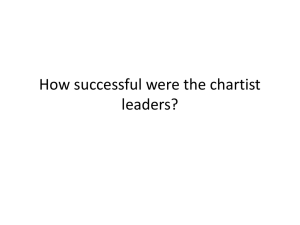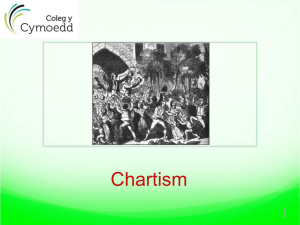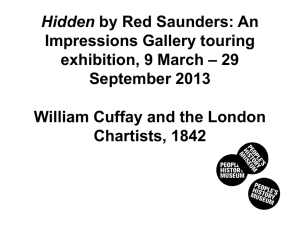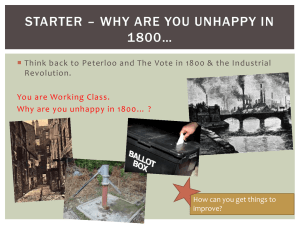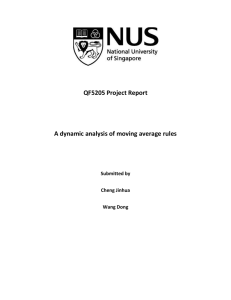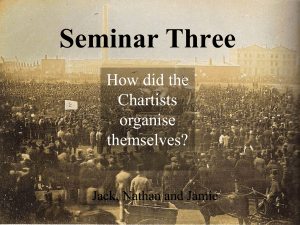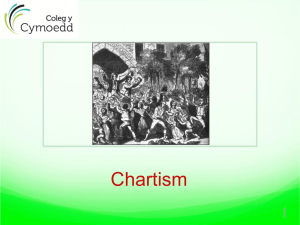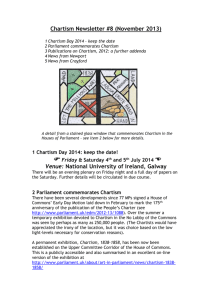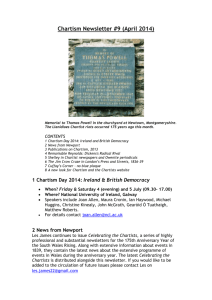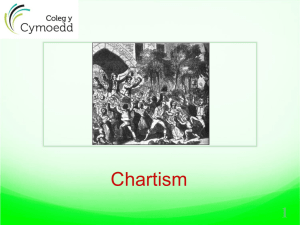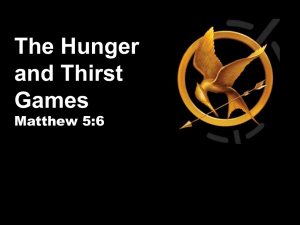Were the Chartists a Hunger or a Political Movement?
advertisement
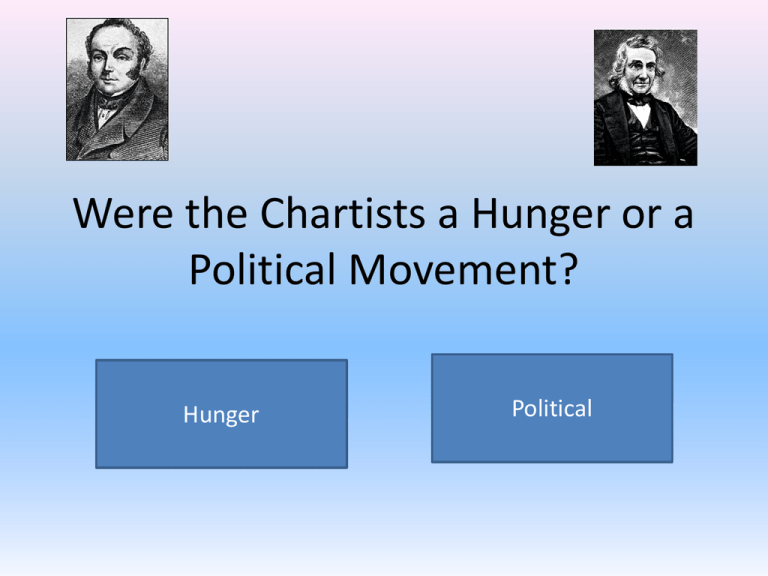
Were the Chartists a Hunger or a Political Movement? Hunger Political Hunger • • • • Plug Plots: 1842 a petition took place which demanded the six points of the Charter and included 3.15 million signatures riots began in industrialised areas. The Duke of Wellington despatched his military forces and O’Connor was imprisoned. Trafalgar Square: a protest occurred here in 9th march 1848 where 10000 people were in the crowd and 103 people were arrested as the government were now trying to stamp down on mass meetings in fear of a revolution. Violence was proven by fear which government felt as in 1848 and the royal family was despatch to the Isle of White for their safety as it was during the chartists third petition: Kennington Common-all the chartists get together to promote the third petition but due to previous riots, threats and rallies the government were afraid of uprise and therefore prepared and warned the Chartists of the military ready to move if they were required. The government and the authorities made some extensive and well-prepared arrangements. After Kennington Commons failure but proof of the Chartists influence and intimidation to the government, other rallies and riots spread throughout the country and continued the demand of Chartism; troops were brought out in June to defend the Bank of England and other public buildings against possible attacks. Hunger Statements • ‘Chartism means the bitter discontent grown fierce and mad, the wrong condition therefore, or the wrong disposition, of the working class.’ T. Carlye 1840 This statement just explains that chartists are for their reform for underlying anger and frustration. • ‘Hunger and hatred- these were the forces that made chartism a mass movement of the British Working Class.’ G.H,D Cole 1941 This statement is following the last; that years of hunger and hard work in poor working conditions caused a lot of anger and frustration amongst the Working Class which may have spurred on the reasoning for joining the Chartists, to fight back against the government as appose to political reasoning. Political • Initial intensions of the Chartists were anger of the Whigs government failure to honour the 1832 Reform Acts political debts and anger over the new Poor Law which found an outlet in Chartism. Britain was at a time for revolutionary change of politics. • Chartism gave birth to the first ever mass working class political party. The National Charter Association; it created a political culture that endured for decades. • The Chartists originally started to change the political system making all reasons of Chartism revolve around political reasons. • After Chartism many chartist continue to be active, if not in the National Charter Association, then in support of the one-off causes, in the radical campaigns for the state-funded schools in later campaigns to extend the franchise and most significantly in the newly emerging Liberal Party, which they helped shape as a more radical successor to the Whigs. The Six Points of the Charter. 1. Votes for all men over 21 2. Secret Ballots 3. Anyone to be MP 4. MP get paid for being MP’s 5. Sizes of constituencies should be equal 6. All constituencies elected every 12 months These demands were for political change. The Six Demand of the CharterDemands and reasons..... • Law shows equality , gives working class power and makes them happy. This law makes voting a right not a responsibility. • No intimidation able to be used. 3. Anyone to be MP • Public see MP’s as one of them 4. MP get paid for being MP’s • 5. Sizes of constituencies should be equal Getting paid for work so they have a incentive to work well and for the people, plus all people would be able to be an MP. • No rotten boroughs MP’s have an equal chance and voters have an equal power and say. • Stops corruption and bribery as MP’s can’t lose their well paid jobs and have to work hard to maintain their popularity. 1. Votes for all men over 21 2. Secret Ballots 6. All constituencies elected every 12 months Hunger or Political? • The Chartists initially started their push for their new demands as they wanted to make a new political system and wanted political change. The Chartists started as a political movement but then due to their inability to organise as a whole group and instead separate into others such as the moral, physical, temperance, Christian and knowledge chartists. The movement lost control, as more and more people joined the chartists and numbers grew in signatures for example 1,280,95 in the first petition and 1,975,496 like at Kennington Common, the government feared Chartists uprising as their separate groups achieved. However no matter how violent the Chartists became there was always an underlying truth that the Chartists began to make political change and throughout their riots, those riots only occurred as they wanted to change the politics of Britain. • Political Hunger Political
